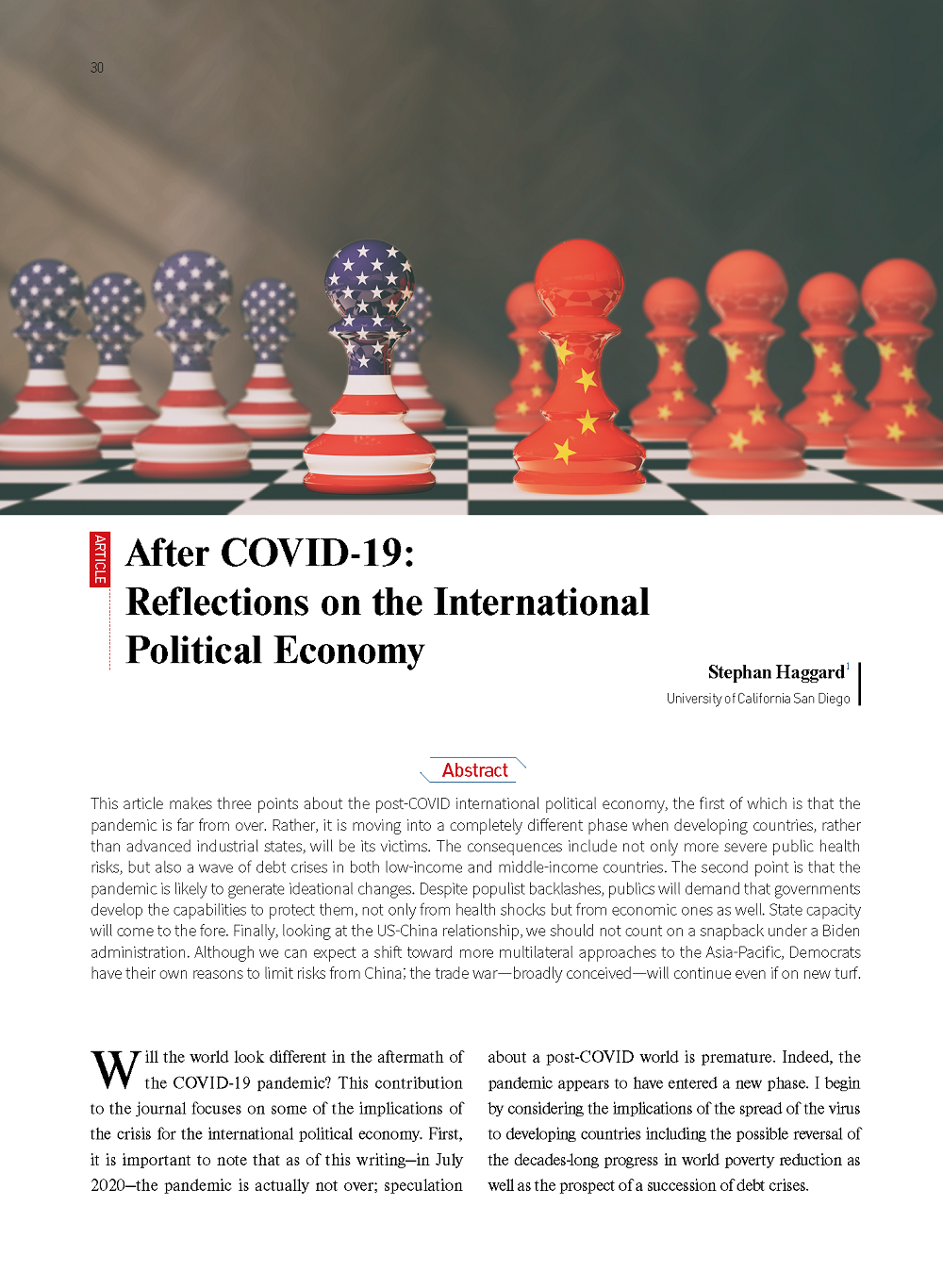This article makes three points about the post-COVID international political economy, the first of which is that the pandemic is far from over. Rather, it is moving into a completely different phase when developing countries, rather than advanced industrial states, will be its victims. The consequences include not only more severe public health risks, but also a wave of debt crises in both low-income and middle-income countries. The second point is that the pandemic is likely to generate ideational changes. Despite populist backlashes, publics will demand that governments develop the capabilities to protect them, not only from health shocks but from economic ones as well. State capacity will come to the fore. Finally, looking at the US-China relationship, we should not count on a snapback under a Biden administration. Although we can expect a shift toward more multilateral approaches to the Asia-Pacific, Democrats have their own reasons to limit risks from China; the trade war—broadly conceived—will continue even if on new turf.
저자
Stephan Haggard is the Krause Distinguished Professor at the School of Global Policy and Strategy, University of California San Diego. His most recent work includes Hard Target: Sanctions, Inducements and the Case of North Korea (with Marcus Noland, 2017); Developmental States (2018); and Backsliding: Democratic Regress in the Contemporary World (with Robert Kaufman, forthcoming 2020).
